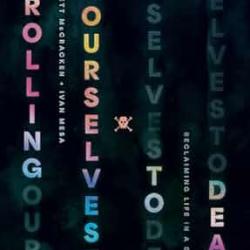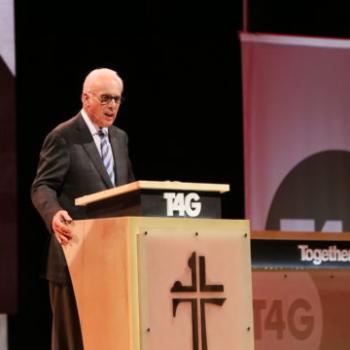Review of C.S. Lewis: A Life by Alister McGrath
By COYLE NEAL
Writing biographies is hard work. Sometimes, there just isn’t a lot of information about an individual—even if that individual is a very important historical figure. Sometimes there’s so much information that sifting through everything to discover what is important can seem to be more trouble than it’s worth (or can result in an interminably long series of books). Add to that the difficulty of transforming the events and facts of someone’s life into a coherent narrative, and I’m surprised that anyone bothers writing biographies at all. Alister McGrath, however, has done a good job navigating these difficulties and has managed to write a biography of C.S. Lewis that is readable and interesting.
Summary:
McGrath tells the story of C.S. Lewis by exploring the relationship between Lewis’ personal life, his scholarship, and his public writings. In that sense, this book is as much an analysis and exploration of Lewis’ writings as it is a biography. Unlike earlier biographies, McGrath’s book is informed by the entirety of Lewis’s known correspondence (the complete letters were published only in the last decade by Walter Hooper). McGrath walks chronologically through Lewis’ life, pausing occasionally to reflect on important events, key publications (especially the Narnia books and Mere Christianity), and significant individuals.
Strengths:
This book has many, many strengths. McGrath is a decent writer (not quite on Lewis’s level, of course, but then who is?) and he has presented Lewis’ life in a way that is, as I’ve said, both readable and interesting. While the book certainly is a bit lengthy, it never feels that way.
Even better, there are individual sections that alone make the book worthwhile. Specifically, McGrath’s discussion of the Narnia books and survey of Lewis’s continuing popularity (especially in America) are thoughtful and bring together a number of relevant ideas. For example, he notes that Lewis’ popularity in America has been connected to the rise of the Evangelical movement and postmodernism and the growth of children’s literature—three aspects of the modern world that I have rarely seen brought together in one place. Likewise, McGrath engages most of the major scholarly works on Narnia and compares and contrasts the varying opinions in a way that keeps it accessible to the average reader.
Weaknesses:
By far the biggest weakness is McGrath’s occasional tendency to be overly scholarly. There are a few occasions when he makes points that would not be out of place in an academic text, but that, in a commercial biography, would have been better left for either a longer footnote or an appendix. Some of this may have been unavoidable—for example, McGrath’s explicitly disagreement with Lewis’s recollection of events in Surprised by Joy. (A bold move in itself, as a biographer questioning the correctness of the individual’s own autobiography certainly raises the reader’s eyebrows and requires some explanation.) Yet, the extensive explanation of, say, the actual date of Lewis’s conversion (which takes several pages) could easily have been moved to an appendix in order to prevent the reader from getting bogged down in what is really more of a scholarly discussion.
That said, these really are minor weaknesses, and come nowhere near outweighing the book’s strengths.
This book will be useful and interesting to anyone who has benefited from and enjoyed Lewis’ books. If nothing else, it will make you want to return to Lewis’s writings and enjoy once more the delightful reflections of a man who deeply loved God and His creation.
Highly recommended.
For more on this book, check out the Patheos Book Club page.
Dr. Coyle Neal teaches political philosophy and church history in Washington, DC. His favorite non-fiction works by C.S. Lewis are:
Feel free to leave yours in the comments!












